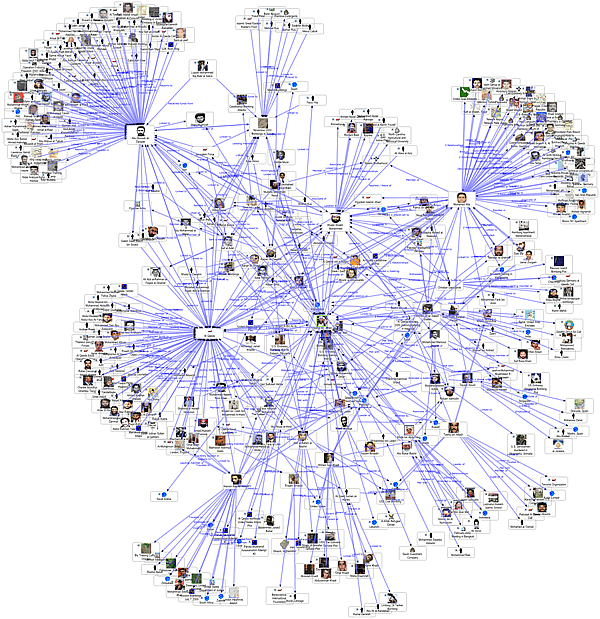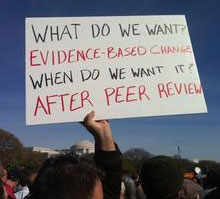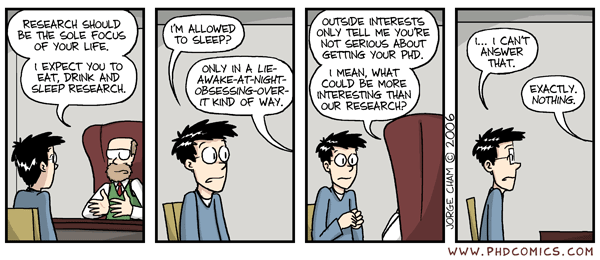There seems to be a lot of discussion around at the moment about the benefit of social media to researchers. The stuff I’ve been reading isn’t really about the value of social media as a research tool, more about the value of social media as a communication tool both within the research community, and between the research and other communities.
Much of the discussion takes place on social media, but I’ve also come across some in more traditional media too - in peer-reviewed journals and a recent conference workshop.
Almost everyone is enthusiastic. Twitter apparently helps researchers keep up to date with their field, and to disseminate their findings more widely, and provides an opportunity to ‘crowd source’ ideas, research funding and even volunteer researchers.
 |
| The social media adoption curve |
One blogger found that blogging and tweeting about their publications led to a massive bump in downloads of her papers – suggesting that many more people were at least aware of them, if not reading and citing them. Others have proposed that the benefits of academic blogging are so self evident that the question has now moved from “why would a researcher blog?” to “why would a researcher not blog?”.
I don’t consider myself particularly ahead of (or even riding the crest of) the social media curve. In fact, I’m quite a social media laggard. I opened my Twitter account about two years ago, but have only been actively using it for around 12 months. I’ve been reading blogs for two or three years. But I follow less than twenty and hardly any of them are work-related. I’ve left fewer than half a dozen comments on other people’s blogs.
And yet I think I am a convert. In the last week I have used Twitter to share ideas with researchers I have never met, sound off about the boring bits of my job (and get a little support back), ‘speak’ to a journalist, and source references for this post. I have been alerted to research I will use in my teaching and been kept up to date with public health and university politics. Twitter provides the possibility of engaging with almost anyone (who is on Twitter) and in this way it is democratizing.
But I am increasingly starting to worry about the sentiment in parentheses in that last sentence. What sort of people are not on Twitter? Perhaps these people are also worth engaging with. Even amongst the Tweeps, I am not shy of the ‘unfollow’ button and rarely put up with people who I disagree with, of find too dull, for long. And in these ways, Twitter can be polarising and exclusive.
As we have developed the Fuse blog and @Fuse_online twitter feed, we have encountered the usual institutional angst about the risks that these media pose to our ‘reputation’. Much of this reflects our collective uncertainty and inexperience of how these avenues might develop. Some of us are not too far removed from previous social media horror-stories that, unsurprising, have put a few people off for good.
My, now almost reflexive, response to these issues is to turn to the internet, to Google, to Twitter and to other people’s blogs. What do others say about the balance of risks to benefits? What exactly might go wrong? How can we mitigate the risks? Good advice often boils down to: think before you act, and don’t do it when you’re drunk.
What is missing, is the other side of the argument. There does not seem to be any coherent discussion about why researchers shouldn’t engage with social media. Perhaps there is no such thing. Perhaps I have ‘unfollowed’ myself into isolation from such points of view.
And yet I think I am a convert. In the last week I have used Twitter to share ideas with researchers I have never met, sound off about the boring bits of my job (and get a little support back), ‘speak’ to a journalist, and source references for this post. I have been alerted to research I will use in my teaching and been kept up to date with public health and university politics. Twitter provides the possibility of engaging with almost anyone (who is on Twitter) and in this way it is democratizing.
But I am increasingly starting to worry about the sentiment in parentheses in that last sentence. What sort of people are not on Twitter? Perhaps these people are also worth engaging with. Even amongst the Tweeps, I am not shy of the ‘unfollow’ button and rarely put up with people who I disagree with, of find too dull, for long. And in these ways, Twitter can be polarising and exclusive.
As we have developed the Fuse blog and @Fuse_online twitter feed, we have encountered the usual institutional angst about the risks that these media pose to our ‘reputation’. Much of this reflects our collective uncertainty and inexperience of how these avenues might develop. Some of us are not too far removed from previous social media horror-stories that, unsurprising, have put a few people off for good.
My, now almost reflexive, response to these issues is to turn to the internet, to Google, to Twitter and to other people’s blogs. What do others say about the balance of risks to benefits? What exactly might go wrong? How can we mitigate the risks? Good advice often boils down to: think before you act, and don’t do it when you’re drunk.
What is missing, is the other side of the argument. There does not seem to be any coherent discussion about why researchers shouldn’t engage with social media. Perhaps there is no such thing. Perhaps I have ‘unfollowed’ myself into isolation from such points of view.










